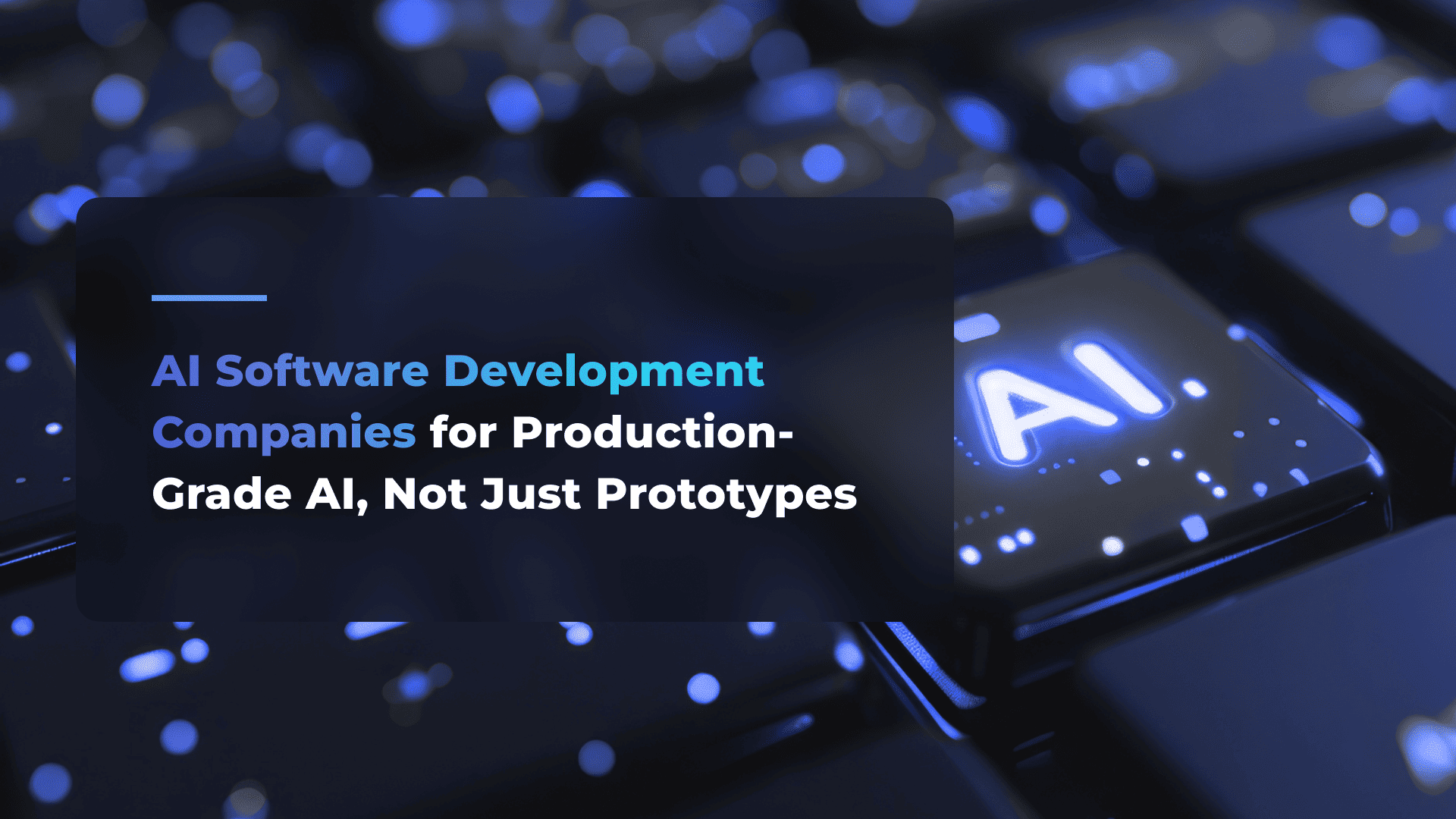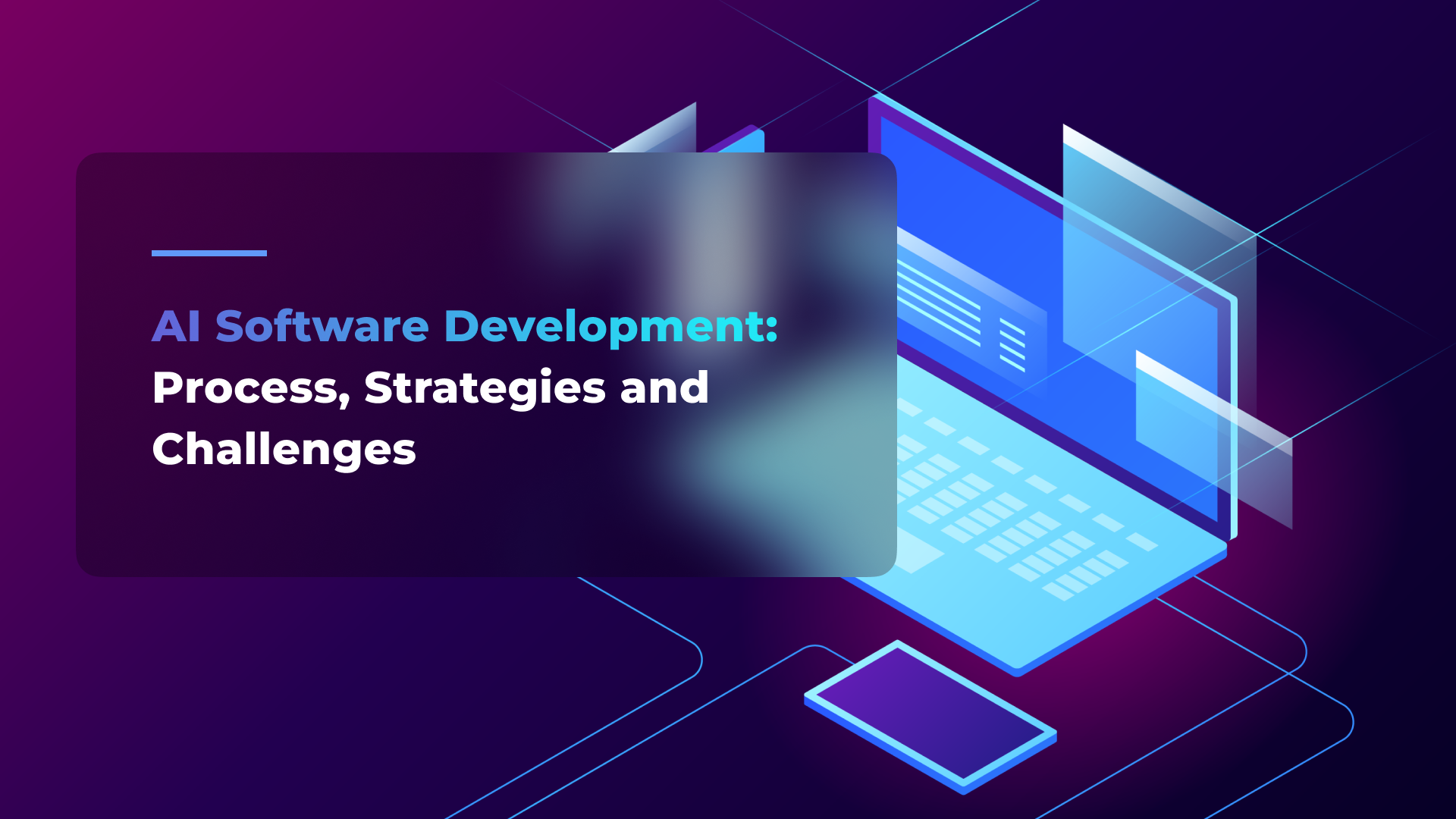70 + AI Statistics Businesses Should Know in 2020

Intro
We are in the middle of the fourth industrial revolution, and technology is the main driving force. It is evolving faster than ever. Businesses that fail to get onto this bandwagon are likely to be left behind. Amongst the 19 technology predictions for 2020, AI in business, 5G Internet connectivity, and widespread IoT applications are topping the charts.
Data science, machine learning, and AI have become the most dominant forces. The marriage of these forward-looking technologies is resulting in breakthrough insights and applications that can change the world. When it comes to the business sphere, AI is already making headway. Technology can help businesses build their cognitive abilities.
AI in business is already helping three functions:
- Process automation
- Cognitive insight
- Cognitive engagement
Benefits of AI Adoption

The financial, retail, and technology sectors are expecting better revenues through AI adoption. The benefits of applying AI in business are expected to grow further over the three years.
Here are some quick stats:
1. Two-thirds of executives think AI in business is crucial for their success.
2. Financial, retail, and technology sectors are most likely to adopt AI.
3. Close to 79% of executives believe that adopting AI in business will make their work efficient and easier.
4. 75% of owners say AI in business will help them explore new opportunities.
5. 59% of executives say AI complements big data.
6. 80% of business leaders think AI helps in creating more jobs.
7. More than 70% of decision-makers believe AI helps them be more focused.
8. More than half of executives say that adoption of AI in business helps with product enhancements.
AI in Sales
Artificial Intelligence helps sales staff achieve their targets easily. Through the adoption of AI in business, they can sell more. According to a Salesforce report, businesses are adopting AI faster than any other technology. The same report also highlights that better-performing sales teams are five times more likely to be using AI.
Here are some mind-boggling facts about AI in business and sales.
9. The majority of salespeople believe AI is essential in forecasting and email marketing.
10. AI results in 50% more sales, up to 60% cost reductions, and more.
11. 30% of B2B companies will start using AI by the end of 2020.
However, there is a downside—one of the most unfavorable statistics of implementing AI in sales:
12. The use of automation can result in a 10% loss of jobs in the USA.

AI in Business
Let’s discuss the impact of AI on business in general.
AI automation enables businesses to reduce human errors, save the time required for manual processes, and create a simpler hierarchy. AI in business sounds sweet. However, smaller companies still face challenges in its adoption.
AI can do more for your business—let’s find the best way to make it work for you. Check out our expertise and let’s discuss your next AI project.
See our AI servicesLet's check out some cool stats related to AI in business:
AI in Healthcare
Healthcare is adopting AI faster than most industries. According to experts, it is important to separate facts from science fiction. AI in healthcare doesn’t mean robots performing complex surgeries or mechanical nurses roaming around in the hospital. For healthcare, AI provides critical data that is potentially life-saving for patients.
Check out some interesting facts on the role of AI in healthcare.
13. AI is fueling promising breakthroughs in the diagnosis of cancer and deadly blood diseases.
14. A chatbot based on AI technology listens to patients and guides them to appropriate care.
15. Major headway in the research and development of new drugs is possible thanks to AI.
16. AI is making human trials of drugs more efficient and less costly.

AI in Agriculture
17. The AI market in agriculture is expected to reach $4 billion by 2026.
18. An exponential rise is expected in the application of machine learning.
19. AI is helping farmers predict the accuracy and quality of their harvests.
20. AI is helping farmers tackle the workforce shortage.
21. The use of AI-powered chatbots provides quick answers to common farm-related questions.
AI in Insurance
22. The use of AI technologies is helping insurers better assess insurance risks.
23. AI adoption in the insurance sector will result in reduced premiums and costs.
24. According to some leaders, advancement in AI technology can pose a threat to the whole industry.
AI in Education
Artificial intelligence is helping students learn and teachers teach better. Humans learn differently and at different rates. Some are good at creativity, while others excel at analytics. Our traditional education system is unable to realize this.
With the adoption of AI, the education system as a whole is changing — and changing for good!
25. Big data and AI can be combined to create personalized learning experiences.
26. The main challenge to AI adoption in this field would be collecting students' data.
27. The use of AI-powered chatbots to answer students' questions is a game-changer. A Spanish institute discovered the chatbot was able to answer 90% of the questions accurately.
AI in Small Businesses
28. Up to 29% of small businesses have already adopted AI.
29. 37% of businesses cite lack of expertise as the main problem with the adoption of AI in business.
General Business Stats:
30. 65% of business people believe AI helps them make informed decisions.
31. More than 70% think ML and AI are going to be revolutionary.
AI in Marketing
Modern teams embrace AI-powered solutions for their marketing efforts. Companies like Google, Netflix, and others use AI solutions for marketing.
When it comes to affordability, AI tools are now more accessible to small and mid-sized companies as well.
Check out some important stats related to AI in marketing:
32. More than 70% of marketers are interested in using AI.
33. Most B2B marketers aren't sure of AI's positive impact on their work.
34. Most marketers are set to adopt AI to create content marketing strategies.
35. AI is proving beneficial in creating better content.
36. 60% of marketers think AI has resulted in better data strategies.
37. Only 12% of marketers believe they have the right skills for AI.
AI in Customer Service
AI in this industry can result in better service and reduced costs. Through AI adoption, companies can get rid of human agents. This will not only lower costs but reduce human errors as well. However, the mass adoption of AI can also lead to more redundancies.
Here are some cool stats:
38. Gartner says 85% of customer service will be missing human interaction.
39. 27% of consumers think AI solutions are better than human interaction.
40. 38% of consumers think AI will improve customer service.
41. By 2025, more than 90% of customer interaction will be supported by AI.

AI Usage
In this section we will discuss some common uses of AI along with important stats.
Voice assistance is one of the most common uses of AI. Besides businesses, general people use this technology too. Here are some important facts about voice assistance.
42. More than half of users prefer voice assistance because of its hands-free style.
43. 42% of adults in the USA say they use voice assistance on their phones.
44. 55% of people between the ages of 18 and 49 use voice assistance.
A chatbot is another cool usage of AI.
45. Chatbots reduce operational costs by up to 30%.
46. 50% of businesses are more interested in chatbots than mobile apps.
47. 64% of consumers love the always-on feature of chatbots.
48. 37% of consumers who would like to know something quickly prefer chatbots to humans.
49. In 2018, Facebook had more than 300,000 chatbots.

AI Market (By Revenue and Growth)
Although AI is disrupting every industry, it still has not reached its full potential. The market is expected to grow at a rapid rate up to 2025. Below is a breakdown of the revenue AI is expected to hit in various fields.
50. The classification, tagging, and image recognition sector will grow up to $8 billion.
51. The algorithm trading market is likely to hit $7.5 billion.
52. The patient processing data market is expected to reach $7.3 billion.
53. Predictive maintenance will hit $4.6 billion.
54. Tracking, detection, and object identification will reach $4.2 billion.
55. Text query of images is expected to reach $3.7 billion.
56. Automated geophysical feature detection will reach $3.6 billion.
57. Social media content distribution will reach $3.5 billion.
58. The market for prevention against cybersecurity threats will hit $2.4 billion.
AI Processes
There are certain sectors in the market that rely heavily on AI processes. According to research by Finances Online, vehicular detection and avoidance is the biggest sector that relies on AI. Its market is worth $8.9 billion. Second on the list is static image detection, worth $7.6 billion.
Other sectors relying the most on AI include medical image analysis, predictive maintenance, HR systems, and more.
AI Market by 2020
In the year 2020, AI will see a great boom. The technology will transform from the “hype” to the “practical” stage in 2020. Data and its uses will be the talking point as more corporations begin to embrace the technology.
Here are some cool statistics related to the AI market in 2020.
59. To reduce cost, as many as 63% of businesses will be forced to adopt AI.
60. 61% of top-level executives will find opportunities in data.
61. By 2025, AI, as an industry will grow up to $118.6 billion.
62. 78% of brands will use some sort of AI application by 2020.
63. 25% of customer service operations will use virtual assistants by 2020.

AI: Productivity and Employment
Just like any other sector, AI has a lot to offer in the employment sector as well. From a business point of view, AI will enable smarter workforces. Owners will be able to make their employees more efficient while maintaining positivity.
Probably the only downside to the adoption of AI in business in this regard can be the loss of jobs.
Here are some key stats of AI adoption in the employment sector.
64. Labor efficiency is expected to increase by 40% in 2020.
65. AI adoption has been most effective for the US.
66. The annual growth rate in the US is expected to increase from 2.6% to 4.6%.
67. The adoption of AI in business will create as many new jobs as it will discard.
68. AI is already being used by many HR firms. They find it useful in areas such as interviewing, screening, coaching, onboarding, and whatnot.
69. According to a McKinsey survey, as many as 30% of jobs could be replaced by AI by 2030.

It is important to realize that the adoption of AI in business is not a threat to the job market. However, it is a structural change. All our workforce has to do is reskill, and we will be ready for the future.
70. 50% of our current tasks can be automated.
71. With proper investment and infrastructure, AI can create up to 50 million new jobs by 2030.
72. Healthcare is one of the top industries expected to see new job opportunities.
73. Did you know in 1930, Albert Einstein blamed machines for joblessness?
AI Future
“AI is going to change the world more than anything in the history of mankind. More than electricity.”— AI oracle and venture capitalist Dr. Kai-Fu Lee, 2018
AI and related technologies are impacting all the major industries. Not only that, but general people and their lives are likely to be affected by this change as well. AI is the main driving force for big data, IoT, and robotics. And this trend is likely to continue for years to come.
Let's check out some more stats about the future of AI in business.
74. 31% of top executives in marketing, IT, and creative fields are expected to invest in AI.
75. As many as 75% of commercial apps are likely to incorporate AI technologies.
76. Global spending on AI technologies will reach up to $57.6 billion by 2021.
Some sectors are already reaping great benefits from AI applications while others are just starting their journeys. Regardless of the state you are in, there is still a long way to go. We can't predict the actual future of AI in business, but the impact it is posing (and will continue to pose) on our lives is hard to ignore.
Skip the endless hiring cycles. Scale your team fast with AI/ML specialists who delivered for Indeed, Orange, and Rakuten.
Scale your team





